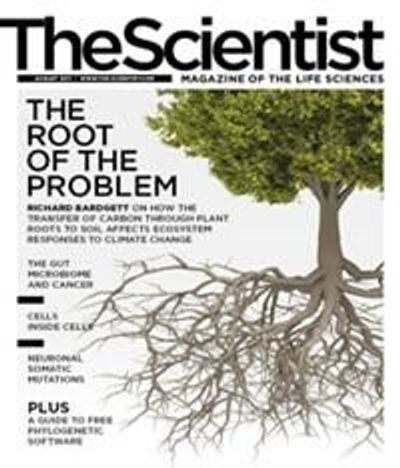 ANDRZEJ KRAUZE
ANDRZEJ KRAUZE
Step, step, hit. It was the rhythm of a routine play for New Orleans Saints linebacker Jim Kovach, one that he was following with his usual precision during the second game of the 1985 season. As Broncos quarterback John Elway handed the ball off to a fullback, Kovach took two steps and lowered his shoulder into the 270-pound offensive guard whose job it was to keep him away from the action. Step, step, hit . . . pop.
The 230-pound Kovach felt a pop in his left knee as his body crashed into the guard. Back on the sideline, trainers prodded and pulled on his leg in an attempt to diagnose the injury. Kovach had completed medical school by attending classes and interning during the previous six off seasons, so he well understood what was wrong. He had torn a knee ligament called the anterior cruciate...
Twenty-five years later, after earning his law degree from Stanford University and working for several years in the biomedical community, Kovach is the cofounder and CEO of a personal genomics company called Athleticode, which aims to help athletes—both professional and amateur—avoid the same fate. Athleticode offers genetic tests for genomic biomarkers associated with high risk of soft tissue injuries. The results, Kovach hopes, could help athletes train in a way that helps protect them from such injuries—a concept he calls “prehabilitation.”
“What our company does is try to provide athletes the knowledge . . . that they could weave into their training,” Kovach says. “We report on genes that have been tested and shown to have a correlation with injury.”
The genes tested by Athleticode primarily code for variants of collagen, proteins in connective tissue such as tendons and ligaments. Sequence variants within COL5A1, for example, which encodes an alpha chain of type V collagen, have been linked to a higher risk of ACL injuries in females. Similarly, female athletes with an AA genotype at a specific locus in the COL12A1 collagen gene (like the allele Kovach carries) have a higher likelihood of ACL ruptures. And certain variants in MMP3, a gene which encodes an enzyme of the matrix metalloproteinase family involved in tissue remodeling, are associated with chronic Achilles tendinopathy, a degenerative condition of the Achilles tendon, as well as with ACL injuries.
As with most genetic risk factors, however, “it’s very difficult, from a service point of view, to [be] conclusive,” says biochemist and molecular biologist Malcolm Collins of the Research Unit for Exercise Science and Sports Medicine at the University of Cape Town in South Africa. Collins led the genetic studies on MMP3’s link to Achilles tendinopathy and ACL injuries, but cautions that while “we’re getting more and more convinced that our association is correct... the evidence is, at best, weak at the moment.”
The dearth of data is not overlooked by Athleticode, says human geneticist Huntington Willard, cofounder of the company and director of the Duke University Institute for Genome Sciences & Policy. “This isn’t going to a doctor and having a test where you know it’s black and white,” he says, but “there’s no harm in providing information to people that says, you know, you just might want to be careful out there.”
Furthermore, Kovach and Willard hope that Athleticode’s services will one day help boost the scientific understanding of sports injuries. “We are using the platform to extend findings through self-reporting to other soft tissue injuries,” Kovach says.
Athleticode is also looking for genetic variants associated with the cognitive and behavioral problems that some athletes who have suffered concussions during play experience later in life, usually after their playing days are over—a search that runs in parallel with the NFL’s recent policy shifts regarding head injuries. “In the last two or three years, we started to see these stories of former players—my age, really— suffering from cognitive issues and behavioral issues, in [some] instances leading to suicide,” says 55-year-old Kovach. He and Willard initiated a pilot study of 100 former NFL players to look at the relationship between self-reported cognitive issues and the presence of polymorphisms in the APOE gene, which encodes a protein expressed in response to neural injury. A variant of this gene has previously been associated with chronic traumatic encephalopathy in boxers, as well as with Alzheimer’s disease.
This will be the first big study to test the APOE-concussion association, Willard says, but “even if we find a trend that says, yes, there might be a genetic connection here, it’s only going to be a suggestion based on a pilot study,” he adds. “[The next step will be to] argue for a much larger study.”
Interested in reading more?





